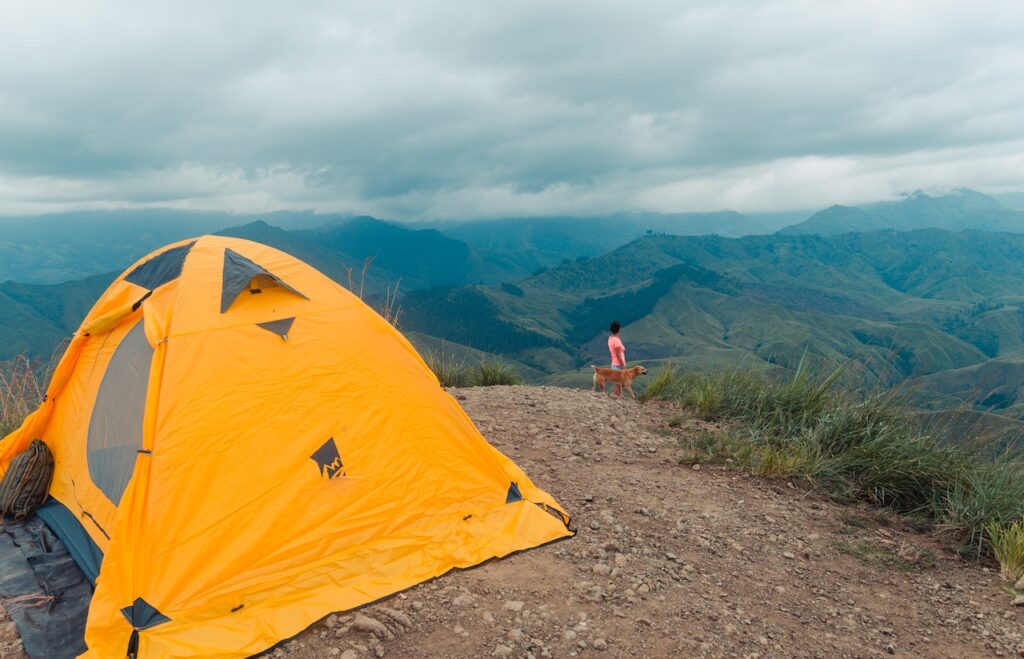In our fast-paced, technology-driven world, it’s easy to get caught up in the daily grind. We wake up, go to work, come home, and repeat the cycle day in and day out. This routine can often leave us feeling overwhelmed, stressed, and disconnected from ourselves and the natural world around us. That’s where hiking comes in.
Hiking offers a much-needed escape from the everyday. It provides an opportunity to disconnect from technology, reconnect with nature, and rejuvenate our mental health. In this blog post, we’ll explore the numerous benefits of hiking for mental health and why it should be an essential part of everyone’s self-care routine. So grab your hiking boots, pack your backpack, and let’s hit the trails!
The Power of Nature
Nature has an incredible ability to soothe our souls and improve our mental well-being. Studies have shown that spending time in nature can reduce symptoms of anxiety, depression, and stress. The fresh air, sunlight, and natural beauty all contribute to a sense of calm and tranquility.
When we hike, we immerse ourselves in nature. We breathe in the fresh, oxygen-rich air, listen to the sound of birds chirping, and take in breathtaking views. This sensory experience is a powerful antidote to the sensory overload we often experience in our daily lives. It allows us to slow down, be present, and fully appreciate the beauty of the natural world.
Physical Health Benefits
In addition to the mental health benefits, hiking also offers numerous physical health benefits. It’s a fantastic form of exercise that can help improve cardiovascular health, strengthen muscles, and increase flexibility. The uneven terrain and elevation changes that often come with hiking provide a natural form of resistance training, challenging our bodies in new and exciting ways.
Hiking is also a low-impact exercise, making it accessible to people of all fitness levels. Whether you’re a seasoned athlete or a beginner looking to get active, hiking can be tailored to meet your needs. You can start with shorter, easier trails and gradually work your way up to more challenging hikes as your fitness improves.
Stress Reduction
Stress has become a common part of our modern lives, but it’s important to find healthy ways to manage and reduce it. Hiking can be an excellent stress reduction tool. When we hike, we engage in physical activity, which releases endorphins – our body’s natural stress-fighting chemicals. These endorphins boost our mood, reduce anxiety, and promote a sense of well-being.
Furthermore, hiking allows us to unplug from technology and escape the constant barrage of notifications, emails, and social media updates. Instead, we’re surrounded by the sounds of nature and the company of fellow hikers. This break from technology allows our minds to relax, recharge, and focus on the present moment.
Building Resilience
Hiking is not always easy. It can present challenges such as steep inclines, rocky terrain, and unpredictable weather conditions. However, overcoming these obstacles can build resilience and increase our confidence in our abilities. When we tackle a difficult hike and reach the summit, we prove to ourselves that we are capable of more than we might have believed. This sense of accomplishment can boost our self-esteem and overall mental well-being.
Hiking also teaches us patience and perseverance. It’s not just about reaching the destination; it’s about enjoying the journey. When we encounter obstacles on the trail, we learn to adapt, problem-solve, and keep moving forward. These skills can then be applied to other areas of our lives, helping us navigate challenges with greater ease and resilience.
Social Connection
While hiking can be a great solo activity, it also provides opportunities for social connection. Joining a hiking group or going on a hike with friends or family can foster a sense of community and belonging. Sharing the experience with others allows us to bond, strengthen relationships, and create lasting memories.
Hiking with others can also provide a support system. When faced with a particularly challenging section of the trail, having a friend or group to lean on can make all the difference. The encouragement and camaraderie shared on the trail can help us push past our limits and achieve goals we might not have thought possible.
Mindfulness and Meditation
Hiking is an excellent way to practice mindfulness and meditation. As we walk in nature, we can focus on our breath, observe our surroundings, and let go of racing thoughts. Being fully present in the moment allows us to cultivate a sense of peace and tranquility.
In addition to mindfulness, hiking can also serve as a form of walking meditation. The rhythmic motion of walking combined with the sights and sounds of nature can create a meditative state of mind. This state of flow helps quiet the mind, reduce stress, and promote emotional well-being.
Tips for Getting Started
If you’re new to hiking or looking to incorporate it into your routine, here are some tips to help you get started:
- Start small: Begin with shorter, easier hikes to build up your fitness and confidence. Gradually increase the distance and difficulty level as you progress.
- Research and plan: Before heading out, research the trail you’re planning to hike. Look for information on distance, elevation gain, and trail conditions. Plan your route accordingly and make sure to bring a map or use a GPS device.
- Stay hydrated and fuel up: Bring plenty of water and snacks to keep your energy levels up during the hike. Remember to pack lightweight, nutritious food that won’t spoil easily.
- Dress appropriately: Wear comfortable, moisture-wicking clothing that is suitable for the weather conditions. Don’t forget to wear sturdy hiking boots or walking shoes to protect your feet.
- Pack essentials: Carry a backpack with essentials such as a first aid kit, a whistle for emergencies, sunscreen, insect repellent, and a hat. It’s also a good idea to bring a rain jacket and extra layers in case the weather changes.
- Leave no trace: Respect nature by practicing Leave No Trace principles. Pack out all your trash, stay on designated trails, and be mindful of wildlife.
Conclusion
Hiking offers a multitude of benefits for our mental health. From reducing stress and anxiety to improving resilience and fostering social connection, it’s a powerful tool for enhancing overall well-being. So, lace up your hiking boots, hit the trails, and experience the transformative power of nature. It’s time to escape the every day and let hiking boost your mental health.
Remember, hiking is a personal journey, and everyone’s experience will be different. So embrace the adventure, listen to your body, and allow yourself to be fully present in the beauty of nature. Your mind will thank you for it!




